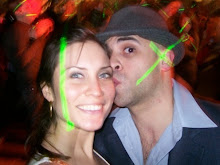Monday, March 3, 2008
Folsom. Thoughts...
I found it intersting to discover, especially in Folsom's article, the many parallels in the histories of the Whitman Archive and of the Blake Archive. Like the editors of the WBA, Folsom and Price set out with a set of intentions--namely, simply to make all of Whitman's work, and as much complementary material as possible, freely available online-- and eventually came to realize through the years how what they were doing was something quite different, which took on a much deeper significance and which plausibly taught them much not only about the dynamics of editing (electronic or otherwise), but also about Whitman's work. First of all, the typical progression seemingly experienced by those behind these online archives, where the editions increasingly (in)form the editors, says something about the very concept of "intention"(our old friend...). I am a firm believer, in fact, that artists (perhaps especially writers) move along a similar itinerary in the process of creating, and if even they set out with a clearly defined concept of their work, the end-product (if there is such a thing) never coincides with it, for the page (or the canvas, or the block of marble) acts as a filter in ways that can never be completely or correctly predicted. But let me not digress. Folsom also praises the electronic database's potential to overcome and perhaps vanquish once and for all the long-established (and oppressive) labels of 'genre', which have survived from Aristotle to the "death of the author", from the Hesiod to Derrida and reader-reception theories. This is another direct point of contant between the Whitman Archive and the WBA, as Whitman as much as Blake challenged the boundaries between genres and mediums to an extent that neither can be adequately understood as an artist with a traditional approach. However, Folsom goes on to introduce the idea of database itself as a genre, and embraces Manovich's plea for "a poetics, aesthetics, and ethics" of the database. (and compellingly, Folsom begins crafting his poetics of database through the poetics of "his" Whitman...) This, it seems to me, is indicative of a most fascinating situation. On the one hand, you have a field (that of electronic editing/online scholarly databases) that is not only still in its infancy, but which many nevertheless fear might not survive to adulthood, because of all the factors that are contingent to its success (luck, funding, costs, technical difficulties, the need for 'saintly' underpayed scholars and for academic institution to credit their work, etc..). On the other hand you have people within this "field" that already are crafting advanced theories about it. I mean, thousands of years passed from the earliest inscriptions on stone to the development of self-aware theories of literature and writing. In our age, we are developing a poetics for something that hasn't even finished being born...
Subscribe to:
Post Comments (Atom)

No comments:
Post a Comment